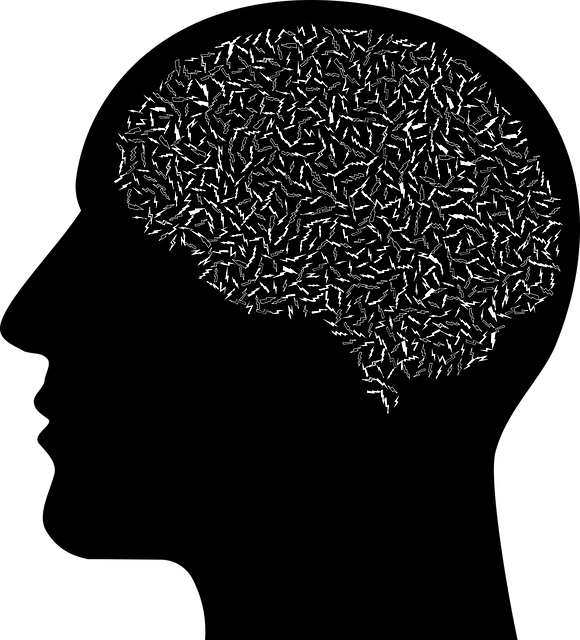The text discusses the evolving nature of wellness approaches, emphasizing the importance of adapting to individual clients' needs, personal attributes, and unique challenges. It highlights that mental health states and client perspectives require tailored treatment plans. Broomfield Independent Medical Evaluations (BIME) are presented as powerful tools for comprehensive psychological assessments, enabling personalized coaching programs. These evaluations go beyond standard diagnostics by considering various factors like social support and coping skills development. The integration of evidence-based practices, such as Compassion Cultivation, into coaching sessions enhances support effectiveness. Moreover, the text stresses the significance of evaluating program success through multifaceted methods, combining quantitative data from IMEs with qualitative feedback to refine coaching strategies for improved client outcomes and mental health professional wellness.
Mental wellness coaching programs are gaining traction as essential tools for promoting holistic well-being. This article offers a comprehensive overview of mental wellness coaching, highlighting its distinct role in contemporary therapy. We explore the significance of Broomfield Independent Medical Evaluations (BIME) in tailoring effective coaching programs to diverse needs. Furthermore, it delves into integrating evidence-based practices and provides evaluation techniques to measure the impact and success of these programs, underscoring the importance of BIME in modern therapeutic approaches.
- Understanding Mental Wellness Coaching: A Comprehensive Overview
- The Role of Broomfield Independent Medical Evaluations in Therapy
- Designing Effective Coaching Programs for Diverse Needs
- Integrating Evidence-Based Practices into Coaching Sessions
- Measuring Success and Impact: Evaluation Techniques and Metrics
Understanding Mental Wellness Coaching: A Comprehensive Overview

Mental wellness coaching is a supportive and empowering process that guides individuals toward improving their emotional well-being. Unlike traditional therapy, which often focuses on treating diagnosed mental health conditions, coaching takes a preventative and proactive approach. Coaches work collaboratively with clients to identify areas of improvement, set achievable goals, and develop customized strategies for enhancing overall mental wellness. This holistic practice encompasses various techniques such as stress management, self-care routine development, and emotional awareness exercises, empowering individuals to navigate life’s challenges with resilience.
By integrating Broomfield Independent Medical Evaluations and therapy principles, coaches facilitate a safe space for clients to explore their thoughts and feelings without judgment. They help individuals gain clarity on their values, strengths, and motivations, fostering self-discovery and personal growth. Through regular sessions, coaches support clients in implementing effective coping mechanisms, improving communication skills, and cultivating positive mindset shifts. The goal is not just to manage symptoms but to promote emotional well-being and enhance the client’s ability to lead a fulfilling life, ultimately contributing to their overall health and happiness.
The Role of Broomfield Independent Medical Evaluations in Therapy

Broomfield Independent Medical Evaluations (BIME) play a pivotal role in therapy by providing comprehensive assessments that go beyond traditional diagnostic tools. These evaluations offer a nuanced understanding of an individual’s mental health, incorporating various aspects like psychological functioning, social support systems, and coping skills development. By integrating BIME into therapeutic practices, mental wellness coaches can tailor their strategies more effectively.
This tailored approach is crucial for promoting emotional well-being. Evaluations help uncover hidden barriers and strengths, enabling the design of personalized therapy plans. Moreover, they facilitate the tracking of progress over time, ensuring that coping skills development remains on course. Additionally, BIME’s insights can inform the implementation of successful community outreach program initiatives, fostering a supportive environment for individuals navigating mental health challenges.
Designing Effective Coaching Programs for Diverse Needs

Designing effective coaching programs requires a nuanced approach to cater to diverse mental wellness needs. Given the wide spectrum of individual experiences and challenges, a one-size-fits-all strategy is rarely successful. For instance, programs tailored for young adults navigating college stress may differ significantly from those supporting seniors dealing with retirement adjustments or midlife crises.
Coaching models should be flexible enough to incorporate various therapeutic techniques like cognitive behavioral therapy (CBT) and mindfulness practices, as well as integrate tools specific to certain demographics. Broomfield Independent Medical Evaluations and Therapy, for example, could offer specialized programs that include emotional healing processes and positive thinking workshops, catering to diverse populations through tailored interventions. This personalized approach ensures that each participant receives support aligned with their unique requirements, fostering more meaningful engagement and ultimately contributing to enhanced mental wellness outcomes.
Integrating Evidence-Based Practices into Coaching Sessions

Incorporating evidence-based practices into mental wellness coaching sessions is a strategic approach to enhancing the effectiveness of support provided. These practices are backed by extensive research, ensuring that coaches offer clients proven methods for improving their mental health and overall well-being. One such practice gaining traction is Compassion Cultivation, which encourages individuals to cultivate self-compassion and empathy, fostering a kinder inner dialogue. This technique, supported by various studies, can significantly contribute to stress management and coping skills development.
By integrating these evidence-based strategies, coaches in Broomfield can offer tailored support that goes beyond traditional therapy. For instance, combining Compassion Cultivation Practices with independent medical evaluations allows for a comprehensive understanding of an individual’s mental health landscape. This holistic approach ensures that coaching sessions not only address current challenges but also equip clients with long-lasting coping mechanisms and enhanced emotional resilience.
Measuring Success and Impact: Evaluation Techniques and Metrics

Measuring the success and impact of mental wellness coaching programs is paramount to ensuring their effectiveness and long-term sustainability. Evaluating these programs requires a multi-faceted approach, incorporating both qualitative and quantitative methods. Independent medical evaluations (IMEs) play a crucial role in this process, offering an objective assessment of clients’ mental health improvements post-coaching. By comparing IME results with initial assessments, coaches can quantitatively measure anxiety relief and other targeted improvements.
Furthermore, qualitative metrics such as client feedback, satisfaction surveys, and case studies contribute to a holistic understanding of the program’s impact. These techniques allow for insights into participants’ experiences, perceived benefits, and areas for improvement. Integrating these evaluation methods—including Broomfield independent medical evaluations, burnout prevention strategies for healthcare providers, and risk management planning for mental health professionals—enables coaches to continually refine their programs, ultimately enhancing both client outcomes and the overall wellness of mental health professionals.
Mental wellness coaching programs are evolving to meet diverse needs, with an increasing focus on evidence-based practices. Integrating techniques like Broomfield Independent Medical Evaluations into therapy ensures personalized and effective support. By measuring success through comprehensive evaluation metrics, coaches can optimize their impact, fostering holistic mental wellness in a dynamic world.










